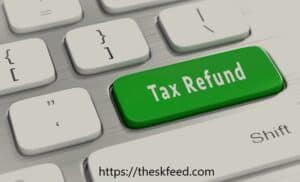Starting a business is an adventure. A lot of uncertainties remain even after extensive market surveys and most successful executions can face challenges, so the risks of business are high. Gains and losses are inherent parts of a business, and a business owner always tries to increase benefits. However, under extraordinary circumstances, a business can suffer damage. A loss is a terrifying term for a businessman, but there is a silver lining. A business owner can receive a benefit in the form of tax deductions in case of heavy losses.
In this article, we will cover the types of losses, and tax refund that you can claim in case your business suffers a loss.

First, let’s consider what a loss is? According to reviso loss is defined as, “In financial accounting, a loss is a decrease in net income that is outside the normal operations of the business.” A loss can occur due to several reasons like losses on the sale of an asset, from a lawsuit or operating losses. Simply put, a failure occurs when a business earns lesser than it spends.
Several types of losses can occur in a business. Many small business owners work part-time jobs too, and they can use the business loss to defer the payable income taxes.
Net operating losses
According to US Federal income tax law, the net operating loss is defined as the when tax-deductible funds exceed taxable revenues for the year. More simply it can be taken as when the work of the year going on is a loss, and you are unable to pay the tax, according to this law tax properly can be deducted keeping in view the progress of last year. So, the taxpayer can manage the loss occurring. However, tax deduction can’t help in the overall damage that much, but the business loss can cause income reduction. So, based on that income tax amount can also be deducted.
Sustained losses:
It is important to maintain the success of the business as loss can’t always be helped by gaining tax deductions. You should be able to make money as continuously getting tax reductions can attract IRS. It is important to gain profit in at least three out of five years to maintain success and tax payments. You can boost your business remotely and be on top to avoid sustaining losses.
Overpaid Tax Refund:
If the owner or taxpayer pays the taxes more than the yearly income tax, it can be refunded or adjusted to the coming year’s tax. It depends upon the payer to claim it back or adapt in the following year’s tax. If they request a refund, then credit entry is made into the tax expenses account. However, the return can decrease the value of the credit upon refund.
Unusual Items
Extraordinary gains or losses are considered unusual times in accounting terms. These are one-off event and do not occur regularly. These gains and losses are reported separately in the income statement than regular events.
According to patriot, these events are described as “An extraordinary loss is a decrease in assets that are not related to sales. A small business loss could result from a natural disaster, fire, expropriation, loss on the sale of equipment, or new regulation. An extraordinary gain is an increase in assets that are not related to sales. Examples of gains include an increase in insurance coverage or paying off debt early.”
Carry forward/carry backward losses
Usually, if a business is struck with a loss, the loss can be carried forward or backwards in books for stability and owners can claim the tax deduction or relief incoming/ previous year due to the damage they suffered.
In case of losses due to theft or a casualty, the net operating losses can be carried back to the previous two years. If the losses still prevail, then the net operating losses can be brought back a year more extending to three years and can be applied on previous returns to claim tax relief. In case the 3-year carryback period is insufficient with net operating losses still leftover than amount can be carried forward in a future performance.
Claiming tax refund
According to business coach Jean Murray claiming tax relief from losses is dependent on the type of business you own in legal terms. He states that,
Getting some benefit from your business loss depends upon the right kind of business you hold and whether your investment in-store “at-risk” in whole or in part. It also depends on whether you have other income.― Jean Murray
If your business suffered from an extraordinary loss that threatens the investment, then it is possible to get relief in your future tax liabilities completely or partially. The tax refund is received quickly within a three months period usually, which can inject much-needed cash inflow in the fluctuating business.
The claiming of tax refund depends on the right type of your business, and the Research Prospect of claiming refunds is broad. For example, if you own sole proprietorship, then you can deduct taxes from non-business income (from other sources) but can not do that if you own a C corporation.
